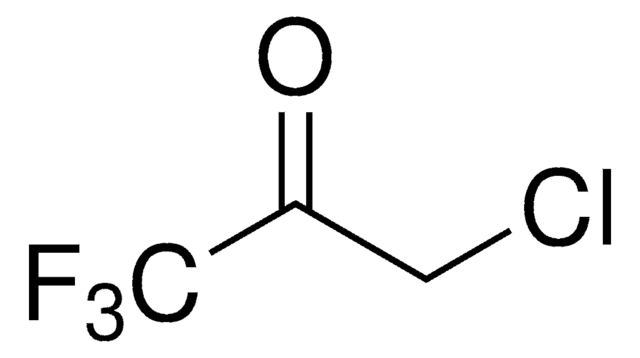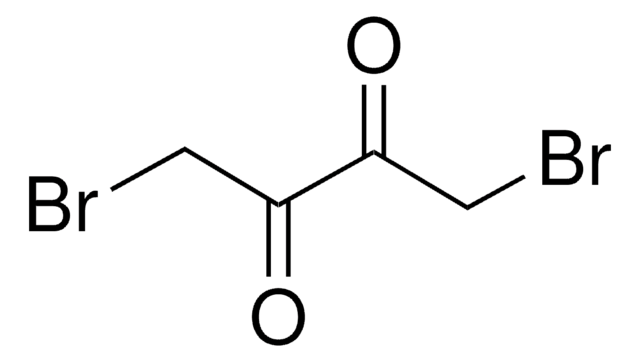374059
3-Bromo-1,1,1-trifluoroacetone
98%
Synonym(s):
1,1,1-Trifluoro-3-bromo-2-propanone, 1,1,1-Trifluoro-3-bromoacetone, 1,1,1-Trifluoro-3-bromopropanone, 1-Bromo-3,3,3-trifluoroacetone, 3-Bromo-1,1,1-trifluoro-2-propanone, Bromomethyl trifluoromethyl ketone, Bromotrifluoro-2-propanone
About This Item
Recommended Products
Assay
98%
form
liquid
refractive index
n20/D 1.376 (lit.)
bp
87 °C/743 mmHg (lit.)
density
1.839 g/mL at 25 °C (lit.)
SMILES string
FC(F)(F)C(=O)CBr
InChI
1S/C3H2BrF3O/c4-1-2(8)3(5,6)7/h1H2
InChI key
ONZQYZKCUHFORE-UHFFFAOYSA-N
Looking for similar products? Visit Product Comparison Guide
Related Categories
General description
Application
- 3-nonylthio-1,1,1-trifluoropropan-2-one
- cyclic tetrapeptides containing trifluoromethyl and pentafluoroethyl ketone as zinc binding functional group
- perfluoroalkylated trans-allylic alcohols
accessory
Signal Word
Danger
Hazard Statements
Precautionary Statements
Hazard Classifications
Flam. Liq. 2 - Skin Corr. 1B
Storage Class Code
3 - Flammable liquids
WGK
WGK 3
Flash Point(F)
41.0 °F - closed cup
Flash Point(C)
5 °C - closed cup
Personal Protective Equipment
Certificates of Analysis (COA)
Search for Certificates of Analysis (COA) by entering the products Lot/Batch Number. Lot and Batch Numbers can be found on a product’s label following the words ‘Lot’ or ‘Batch’.
Already Own This Product?
Find documentation for the products that you have recently purchased in the Document Library.
Customers Also Viewed
Our team of scientists has experience in all areas of research including Life Science, Material Science, Chemical Synthesis, Chromatography, Analytical and many others.
Contact Technical Service












